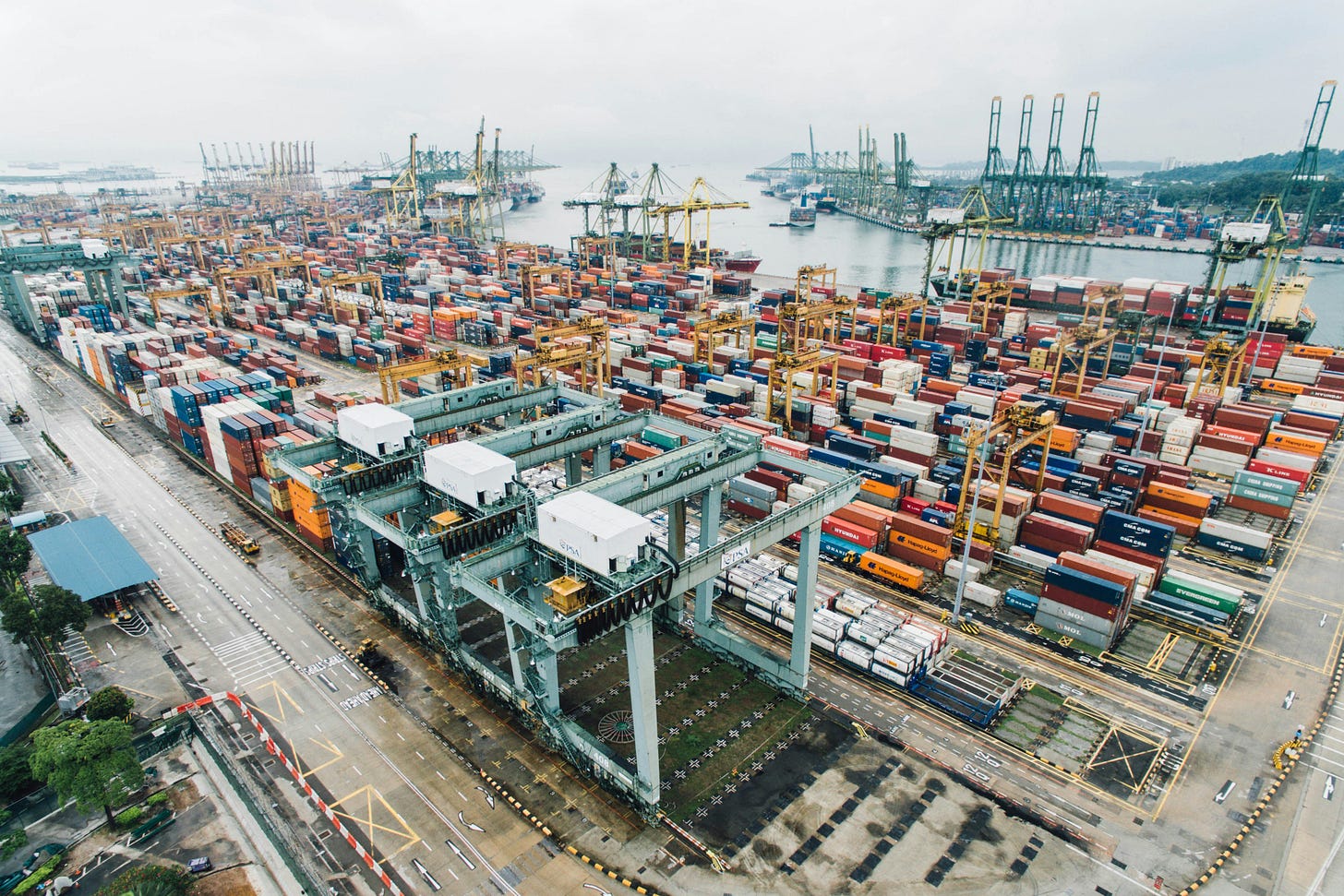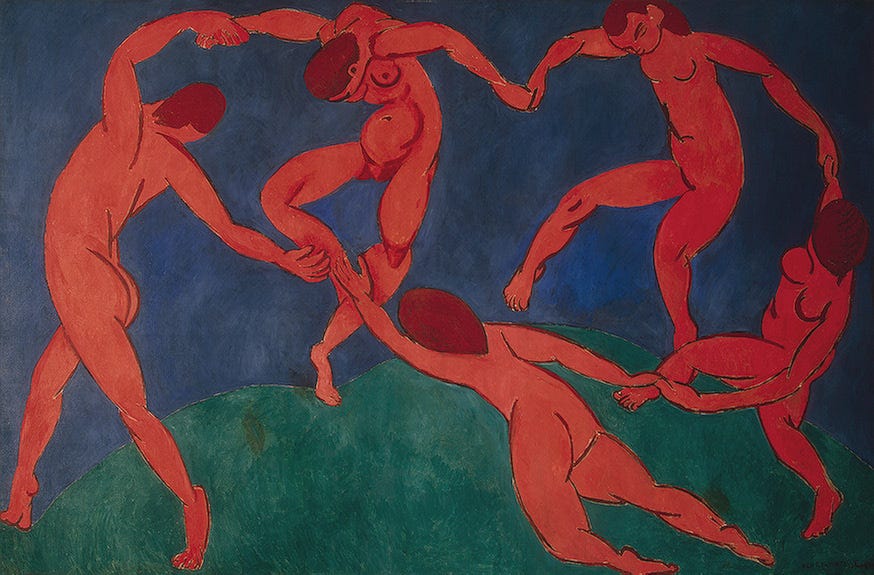The Case Against Friendshoring
In my opinion, and as history shows, a less interdependent world is a more unsafe one.
Friendshoring: “the rerouting of supply chains to countries perceived as politically and economically safe or low-risk, to avoid disruption to the flow of business.” This notion and the related concept of nearshoring, whereby a company relocates business operations to a country closer to headquarters, have recently become vogue.
Proponents of these trade practices argue that they strengthen security by allocating the production of goods and raw material extraction to allied countries. In my opinion, and as history shows, a less interdependent world is a more unsafe one.
Heightened tensions between the US and China—the world’s leading manufacturer—fuel the trend towards rerouting trade. For example, in August 2023, the US banned certain American investments in Chinese technology, channelling that money to other markets. Arguments in favour of “de-risking” trade have also become increasingly popular following the COVID-19 pandemic and Russia reducing its gas supply to EU countries to lower their support for Ukraine, which Russia invaded in February 2022.
There might be benefits to friendshoring and nearshoring, but they are heavily outweighed by the costs. Firstly, structuring trade along political lines harms productivity and growth. According to the International Monetary Fund, friendshoring could hurt real (inflation-adjusted) GDP in the US and Europe by 0.1%–1% and inflict a 4.7% decrease in countries caught in the crossfire between the West and its rivals. The European Central Bank found that global gross national expenditure could fall up to 5.3%.
Much more importantly, however, dividing the world between allied and adversarial countries can increase the risk of inter-bloc conflict, as nations are less dependent on each other for prosperity. In the Oneal and Russett model, for example, increasing the level of interdependency by a single standard deviation decreased the level of conflict by 44%.
A lack of interdependence also breeds distrust. During the Cold War, when much of the world was split by the famous Iron Curtain, the threat of nuclear war was ever-present. In the event, the planet wasn’t blown to smithereens, but that’s down to luck and the cool heads of individual officials as much as anything else.
For instance, on 26 September 1983, a Soviet early-warnings system for nuclear attack malfunctioned, showing that the United States had launched five ballistic missiles at the USSR. Stanislav Petrov, a lieutenant colonel in the Soviet Air Force, was on duty that day and figured out the alarm was false. If not for him, things might have ended differently.
Distrust plays a crucial role in whether countries think it’s worth trading with each other to avoid war. Nations don’t make decisions in a vacuum. Instead, argues Copeland, they take calculated risks—if a highly trade-interdependent country expects future trade to be low, severely impacting its prosperity, the risk of war increases to secure resources. And vice versa. In this sense, the risk of conflict grows if a country has more reasons to distrust the intentions of others.
This was the dilemma facing Hitler’s regime in the 1930s. Germany had been reliant on imports during the late 19th century, which meant the British naval blockade during WW1 led to famine and other hardships. Germany’s terms with Russia in 1917 and the Treaty of Versailles in 1919 did little to dampen suspicion between European powers.
To ensure Germany would never again be at the mercy of potential enemies, the Nazis sought to create an empire self-sufficient in food production and other vital industries. For this, Germany needed more territory—living space (lebensraum in German). The result of this policy was the most destructive war in the history of the world, with casualties estimated between 35 million and 65 million. (For more on this topic, I strongly recommend Tara Zahra’s Against the World).
The post-1945 world order was created on the foundations of more sustainable and inclusive globalisation to reduce the risk of conflict, promoting cooperation and diplomacy. Of the multilateral institutions founded after WW2, the World Trade Organisation (WTO) has the mandate to ensure global trade does not break down by developing and enforcing internationally recognised trade rules.
There are certainly problems with the type of trade practices the WTO advances, especially for developing countries. Among other things, it has been argued that WTO regulations increase global inequality and favour multinational corporations. These issues are extremely important and need solving, but dividing the world into independent trade zones is not among the solutions.
It’s disappointing that Western countries—some of them instrumental in creating the current order—seem the most keen on abandoning today’s global trade system. Talk of a looming threat from China is part of an increase in rhetoric across the West that, frankly, is starting to sound like warmongery.
The Beijing-Moscow-Tehran axis is presented as a threat to liberal civilisation, yet diplomacy seems to be off the table. The US and European allies blocked Russo-Ukrainian peace negotiations in March 2022, Trump withdrew from the Iran Nuclear Deal in 2018, and the Biden administration has ramped up the trade war with China. The list goes on.
Far from pursuing diplomacy, the West is arming itself. My thoughts on Europe’s current rearmament are encapsulated by Yanis Varoufakis in a column for Project Syndicate:
“What will happen when our warehouses are full of ammunition and missiles? Either the investment drive Michel [President of the European Council] envisages will dry up or Europe will need to find ways – in other words, new wars – to deplete the stocks.”
In an example of delicious irony, Swedish aerospace and defence company Saab’s CEO Micael Johansson recently said China threatens Europe’s supply of…gunpowder.
As for the United States, WW2 massively increased the country’s industrial capacity and brought it finally out of the Great Depression. It’s perhaps a tough call whether to have another go.
For the benefit of ordinary people, Western leaders need to learn from the past. When trade and diplomacy falter, conflict looms large. A world of rival blocs can be dangerous. Lest we forget.
// Adrian






Well written about a both current and important area. Unfortunately, we do not learn from history but return to old incorrect solutions to many problems.
The most important thing is to never reduce either exchange nor dialogue.